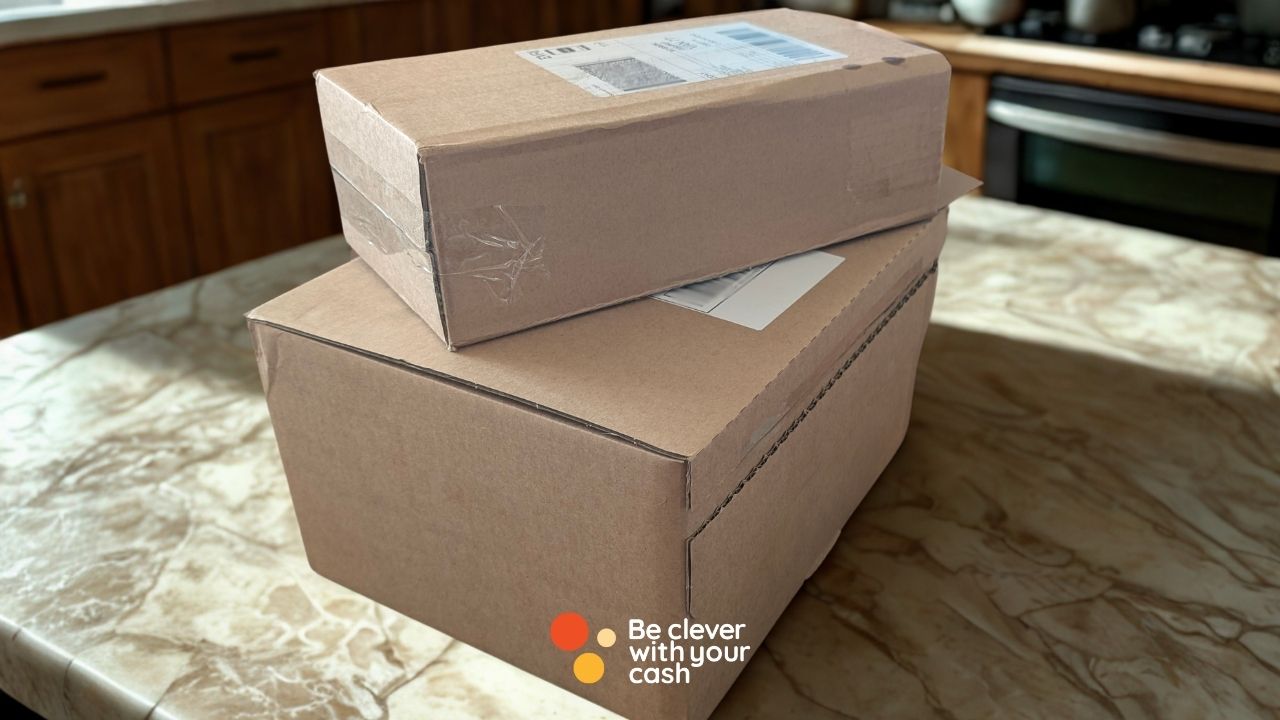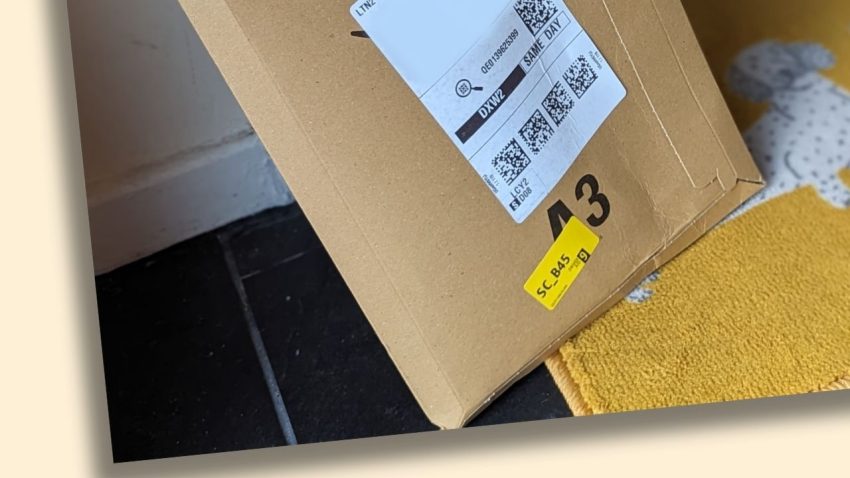These costly fees can’t legally be charged to ordinary customers, but some retailers are trying their luck
Online retailers are charging illegal ‘restocking fees’ to customers who return high-value items, such as wedding dresses, furniture and interior design.
Not only should these fees not be charged, but they can be incredibly high, as much as 25% of the price of the items or hundreds of pounds.
But what are restocking fees and is there ever a case when companies are allowed to apply them? Plus, I’ll explain how to fight back when companies try to make you pay and how we forced one company to change its policy.
Some articles on the site contain affiliate links, which provide a small commission to help fund our work. However, they won’t affect the price you pay or our editorial independence. Read more here.

What are restocking fees?
If you come across restocking fees, they’re usually charged by online retailers when customers return an item.
The charge is designed to cover the cost of processing the returned items, including inspecting them, repackaging them and replacing them with extra stock. Clothing companies typically reference the ‘buy many, keep one’ method of online shopping as a reason for the charges.
For example, if you’re buying a dress or shirt for a special event, you might order several different options or sizes and return all but one. The retailer theoretically needs to have extras of each item in stock to sell to other customers, which costs them money and will take up space.
We’ve seen restocking fees charged in different ways. They’re sometimes a set amount per item returned, for example, bridal shop Six Stories, charges a £2 fee per item returned. They can also be a percentage of the returned amount, sometimes up to 25%. These fees are taken from your returns refund.
When are restocking fees charged?
Restocking fees are more commonly charged by businesses who sell to other businesses, such as or wholesalers, which is legal.
However, we’ve discovered a number of retailers applying this fee to ordinary shoppers who want to return items they’ve bought online. Which definitely isn’t allowed.
Companies that charge restocking fees
Since we started investigating this issue, we’ve seen several companies remove their restocking fees, including bridal and occasionwear companies JJ’s House, Azazie and Missacc.
Some other companies we’ve come across that charge restocking fees in the UK include:
- Ever Pretty, a bridal wear company, charges a 5% restocking fee when returning three or four items, 10% when returning five to 10 items and 15% when returning more than 10 items, credited as a gift card
- Lace & Button, a wedding dress retailer, charges a £350 restocking fee for returns which can be redeemed against another dress or returned to you once the dress is resold.
- Six Stories, a bridal wear company, charges a £2 fee per item
- Hidden Botanics, a dried flowers company, charges a 30% restocking fee if you don’t choose store credit
- Lightzey, a lighting company, charges a 10% restocking fee if you change your mind on a purchase
- Cicinia, a bridesmaid dress company, charges a 10% restocking fee if you change your mind
- Plank Hardware, an interior design company, charges a £5 restocking fee if you change your mind
- Lavetir, a clothing retailer, charges a restocking fee between 20% and 50% depending on your reason for return
We contacted all the companies to ask why they charged restocking fees when they were illegal, but the majority did not respond to our requests.
The only company to explain was Cicinia. A spokesman said: “Because our warehouse is remote, the round-trip cost is higher. And many buyers will try on multiple items in a single order (as an example, we’ve seen up to eight) and as we mention on our website, all fees are written into the policy, we don’t charge extra. And the goods are made after the order is received, rather than a one-time production of a large number of clothes to sell. So we reduce the likelihood of that happening by charging a fee.”
Cicinia added that it was also actively looking for a better warehouse in order to better solve this problem in the future.
 Featured switching deal
Featured switching deal
 Customer rating
3.8/5
Customer rating
3.8/5
- Switch bonus£200
- Offer endsUnknown
- FSCS Protected? Yes
- Bonus requirements Switch using the Current Account Switch Service and close your old account within 60 days of starting the switch
- Deposit requirements Deposit £1,500 in the first 60 days from opening the account
- Direct debits transferred over Set up two Direct Debits before or after the switch from a selected list of household bills
- Existing customers? Can't have held any Santander current account on 1 January 2025
- Restrictions Can't have received a switching bonus from Santander already, offer limited to once per person
- Eligible accounts Open a new or hold an existing Everyday, Edge, Edge Up or Edge Explorer current account
Are restocking fees legal?
For the most part, restocking fees aren’t legal. This is because of the 14-day cooling off period from the day of delivery that applies to the return of goods bought online, which I’ll explain more about below.
According to Trading Standards, there are instances where they may be allowed, typically where the cooling-off period doesn’t apply, but only if the terms and conditions of the website state the fee clearly. This includes:
- Where the order is a custom order – such as made to measure or personalised items
- If the order is a business-to-business (B2B) order or made on a B2B website
- When the items are significantly reduced in value from mishandling by the buyer, such as if you damage the item before it is returned or break a hygiene seal
We asked Trading Standards whether shops were allowed to charge restocking fees and they told us:
“If a customer is charged a re-stocking fee when buying an unused item online, this would likely amount to a breach of Trading Standards legislation.
“Under this law (The Consumer Contracts (Information, Cancellation and Additional Charges) Regulations 2013) a customer has a right to a fourteen day cooling off right and is entitled to return the goods for any reason. This refund should include standard postage costs and be made within fourteen days.”
So in short, no re-stocking fee should be charged when returning unused goods.
Customers can return items for a full refund
Under the Consumer Contracts Regulations, you have a ‘cooling off period’ of 14-days where you can decide whether you want to keep it. It applies when you haven’t seen an item in person, such as when bought online, except where it’s made to measure or bespoke. If you don’t want the item, you can return it within this period, without question.
In addition, if you paid for standard delivery, this needs to be refunded to you, although you’re responsible for the cost to return the item or the retailer might charge you a small returns fee to cover that cost. If you paid for premium delivery, you’ll only be refunded the standard delivery cost.
However, some items are exempt from the 14-day returns rule, including:
- Items that deteriorate quickly – like fresh flowers or food
- Personalised or custom-made items
- Anything sold by a private individual, such as from a social media marketplace or online auction site
- CDs, DVDs or software, if you’ve broken the seal
- Items with a broken hygiene seal, like earrings or swimming costumes

Restocking fees vs returns fees
All companies are allowed to charge returns fees for the cost of shipping the item back, even within the cooling off period, and many do. We spoke to Gary Rycroft from Joseph A Jones & Co Solicitors who said “if a consumer is notified in advance and at the time of purchase of a return postage charge, that is lawful.”
These can be charged when you change your mind about an item and want to send it back. The company should have in their returns policy that they’ll charge you for the return – a company that offers ‘free returns’ isn’t allowed to charge you for posting the items back, for example. These are different from restocking fees as they only cover the cost of postage or go towards the cost of postage.
However, returns fees should be ‘reasonable’. For example, ASOS has a £3.99 returns fee for customers that return items often, Oh Polly charges £2.99, and New Look charges £2.50. The charge can’t be more than the cost to post the item back to the seller, and if the item is faulty or not as described, these fees can’t be charged.
What to do if a company tries to charge a restocking fee
While it’s illegal for a website to try and charge a restocking fee, it’s not a good idea to buy from a company that includes it in its terms and conditions. It’s generally easiest to avoid websites that will try and charge them to avoid having to try and recoup your money.
However, if you do want to buy something from a website that has restocking fees in the returns policy or you’re attempting to return an item and an online store is trying to charge you, here’s what you can do.
- Check the returns policy. If possible, do this before making an order. You’ll be able to get an idea of how easy your return will be before anything’s even arrived.
- Notify the seller that you’d like to make the return within 14 days of receiving the item. You can quote the 14-day cooling off period and let them know you’ve changed your mind about the item. They can require you to pay for the postage to return the item.
- If the seller doesn’t agree to waive the restocking fee, contact the Citizens Advice consumer helpline on 0808 223 1133. They’ll be able to notify Trading Standards. Then, notify the business that you’ve contacted Trading Standards.
Get the best of our money saving content every week, straight to your inbox
Plus, new Quidco customers get a high paying £18 welcome offer


My success with restocking fees, and how I forced a company to change its policy
I’d never heard of restocking fees until recently, while choosing bridesmaids’ dresses for my upcoming wedding.
Bridesmaids dresses are notoriously difficult to buy in-store as high-street retailers don’t have the space to compete with websites that offer endless options. So I simply gave my five bridesmaids a colour scheme to follow and told them to order a few so we could try them on together, and return any we didn’t like.
But with bridal shops, even trying on dresses can be costly. One website, JJ’s House, offers a ‘try on’ service, where you can pay £6 to try on a dress at home from a set range.
You can then return it within 10 days or be charged the full price for the dress plus the £6 you already paid. However, its try-on options are extremely limited, so we weren’t able to order the styles in the right sizes or colours, so didn’t use this service.
The returns policy stated that there was a 10% ‘restocking fee’ when returning bridesmaid dresses. At £100 per dress, that’s £10 for every dress tried on.
So, if each of my five bridesmaids tried four dresses each, that’s £200 just for trying them on! So we avoided this site and other retailers with similar policies.
However, one of my bridesmaids fell in love with a dress on the website. She bought it but when it arrived, the dress was much too small. She sent it back to exchange it for a bigger size but JJ’s House told her she’d have to pay a £9.50 restocking fee, which they took from her refund. She responded, quoting the 14-day cooling off period, and they replied with a link to the return policy.
I emailed JJ’s House to tell them they couldn’t charge the fee, again quoting the 14-day cooling off period.
JJ’s House referenced its return policy again but agreed to waive the restocking fee, as a gesture of goodwill.
Although I’d managed to avoid the fee, I replied to JJ’s House to reiterate that the fee wasn’t lawful.
Ten days after my final email, JJ’s House changed its returns policy, removing the restocking fees applied to returns. It announced it with an email sent to all customers on its mailing list.
A win for me, and a win for all future JJ’s House customers.
Have you come across a retailer charging restocking fees or have you been charged them yourself? Let us know at [email protected].






ChatGPT (not always 100% reliable!) has this to say:
When buying goods online, you usually have a 14-day “cooling-off period” from the day after receiving the goods. During this time, you can inspect the item to determine its nature, characteristics, and functioning — just as you would in a physical shop.
Breaking Seals & Re-stocking Fees
You are allowed to open packaging and inspect the item to the extent necessary to assess it.
However, some types of seals (especially for hygiene or software reasons) can invalidate the right to cancel, but only in specific cases.
❌ When restocking fees are NOT enforceable:
If the item isn’t one of the exceptions (like perishable goods, custom-made items, or sealed hygiene items), and you’re only inspecting it as you would in-store, they can’t charge a restocking fee.
Example: If you open a camera box to look at it, test it lightly (without damaging it), and decide it’s not right for you — you’re entitled to a full refund, and no restocking fee should apply.
✅ When they might be able to deduct:
If the item is used beyond normal inspection, damaged, or returned in a condition that reduces its value, the seller can deduct an amount from the refund to reflect the diminished value.
But this must be based on actual loss of value, not a blanket percentage like 20%.
Hi Andy – I’ve noticed some shops (e.g. camera stores) state that they will charge a re-stocking fee of up to 20% if the returned item has any product seals broken. I’d thought it was permitted to examine goods purchased online to determine their suitability so this would require breaking the seal to open the goods. If, for example, the customer decided that the item was not suitable (e.g. not happy with quality after inspection), then is the re-stocking fee legal, assuming that the item wasn’t faulty?
A ‘win’ for you sure, and it’s reasonable to expect retailers to comply with the law, but this is surely one of those cases where the actions of retailers are understandable – they’re simply trying to recover some of the cost they’re put to by unscrupulous customers buying and returning multiple items. There’s a bit sustainability point here – not only the environmental cost of all the transport back and forth, but also the huge amount of waste in the clothing industry, as many returned items are simply disposed of.